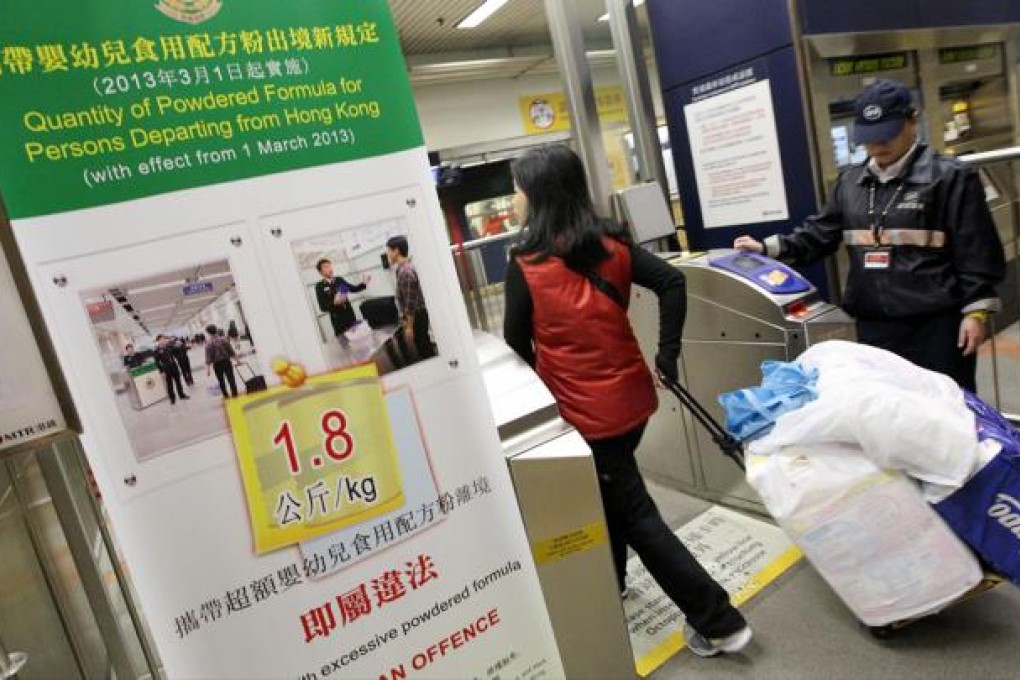
Putting hard administrative restrictions on cross-border trade of milk powder is a policy which brings a very high cost to all parties. Businesses immediately lose customers and income.
Society pays for increased resources devoted to tightening border controls. The rail system becomes less convenient and more costly.
All these costs will eventually have to be paid for by taxpayers and consumers in Hong Kong.
The political reason for the restrictive government intervention is obvious. Some Hong Kong families with young children don't like the price hikes and supply shortages caused by frenzied purchases from across the border.
There are better ways to cater to the needs of these Hong Kong families without all the costs mentioned above, ways that are politically correct and economically wise.
I propose a set of specific recommendations.
First, let the buyers from across the border, or anyone from anywhere, buy as much milk powder as they want and bring it to wherever they wish, the arrangement that existed before the new restriction was imposed.